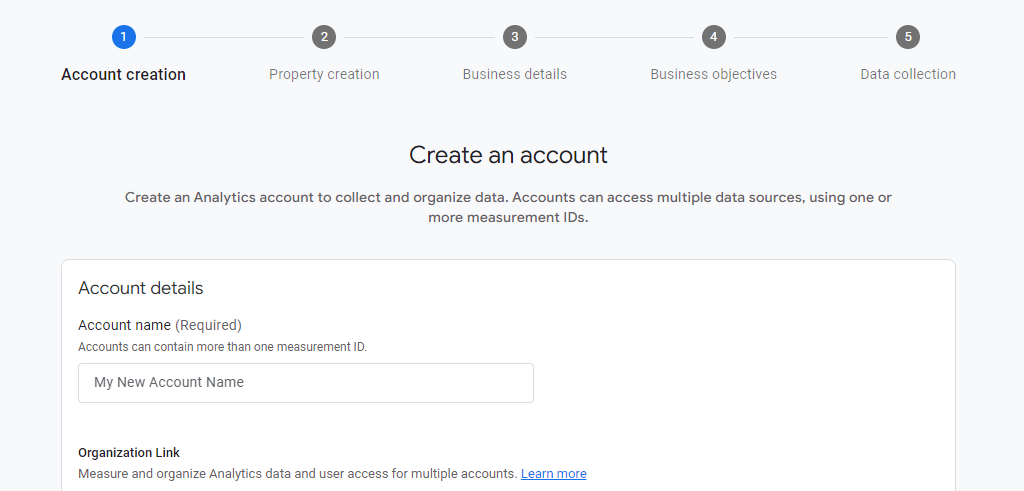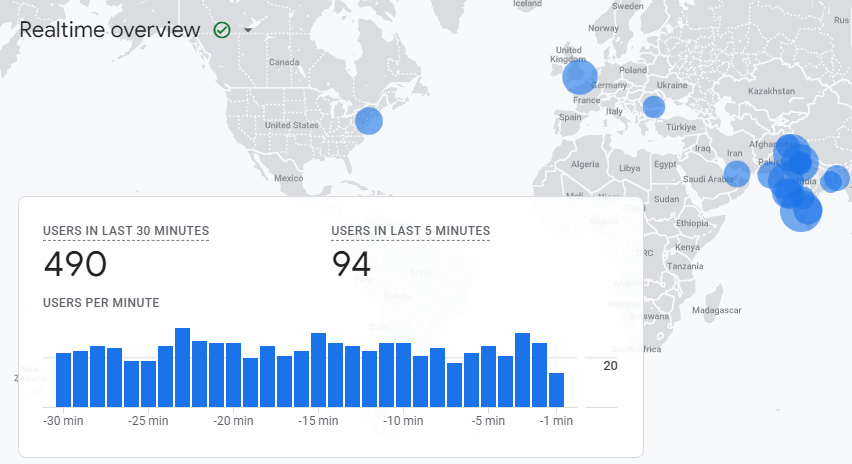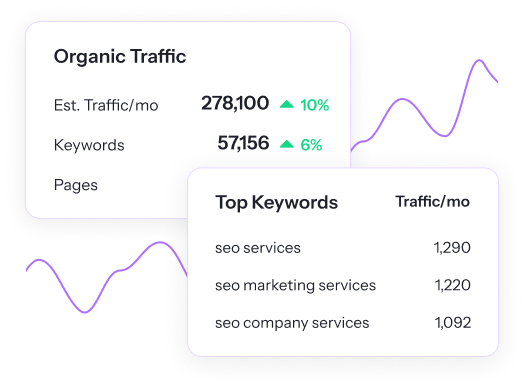After hours of work, it’s finally time to launch your company’s website. However, once you launch your website, your job is not over. With the help of tools such as Google Analytics, you can determine who is visiting your site and their browsing habits to fine-tune your marketing strategy.
Benefits of using Google Analytics for your business
Understanding your website visitors is the first step toward improving your search results and enhancing your marketing strategy. Some additional ways Google Analytics can aid in improving your website’s results include:
- Easy integration with other tools: Google Analytics is compatible with various tools, like Google Search Console, to offer even more data for your site.
- Option to create customized reports: The Google Analytics platform offers many built-in tools, like creating customized reports for data that are most relevant to your business.
- Complete automation: After implementing the code on your website, Google Analytics will automatically record and store data.
- No cost: The Google Analytics platform is free, meaning you can access a treasure trove of information without exceeding your marketing budget.
What kinds of data can you track with Google Analytics?
The data Google Analytics provides is in three parts:
- Acquisition: Your acquisition data shows how traffic arrives at your website.
- Behavior: The behavior data allows you to find out what actions visitors perform once they arrive at your website.
- Conversions: Using conversion data enables your business to learn how to turn visitors into customers on your website.
How to set up Google Analytics on your website
Allowing Google Analytics to start tracking data on your website is a simple process that you can complete in three steps:
-
Add your website to your Google Analytics account

After signing into Google Analytics with the Google account you want to use to manage your analytics, you will go to the Google Analytics setup page. Select “Start Measuring” to redirect you to the account details page. Select that you want to share your data before measuring a website, app, or platform.
Then, you will enter information about your website, like the name, URL, and time zone. After entering the data, you will hit “Create” to complete the process of making your Google Analytics account.
-
Install the tracking code
Once you complete the setup, you will see a unique tracking code that you must install on every page of your website. You can use two different methods to install the code on every page, depending on how comfortable you are with making changes to your site.
The first is to install Google Analytics onto each page manually. Some WordPress themes offer the option to add your tracking code or add it to your header file before the closing tag for an easy way to install it across every page.
The second option is to use a plugin. All you need to do with a plugin is install it and add your tracking code before letting the program handle the rest.
-
Verify that your tracking code is working
Once you add the tracking code to every site page, you will want to ensure it works. Open the Google Analytics dashboard and go to “Realtime” and “Overview” to see what is happening on your site.
Then, open your site in a new browser or incognito window. If your code is working correctly, you will see that there is currently one active user on your site (you) and that your tracking code is working.
How to make the most out of Google Analytics reports
One of the many benefits of using Google Analytics is that it will compile all of the data it collects into a convenient report for greater insight across your entire site. There are five reports available from Google Analytics, and they all offer different insights.
Realtime report

A Realtime report shows data such as how many people view your site. With this report, you can know precisely how much traffic new pages are getting and if a sale or another special event is helping to drive traffic.
Audience Report
An Audience report gives an overview of your website in terms of data points such as demographics, interests, and location. Using the data from an Audience report enables you to understand your audience and cater to their needs and interests better.
Acquisition report

An Acquisition report gives an overview of how customers arrive at your website. Some of the traffic sources available in the report include organic, direct, and affiliate.
Behavior report
A Behavior report shows your visitors’ habits once they are on your website. Some data you can view includes page views, average time on pages, and exit rates.
Conversions Report
A Conversions report shows the journey visitors take to transform into customers. Your ideal conversion and corresponding report will vary depending on the type of website you operate. For example, if you run a blogging site, you will want visitors to stay on the page for as long as possible to increase ad revenue.
Learn how to make Google Analytics work for your business with SEO.com
Easy access to data is one of the best ways to empower your business and make more informed decisions. Using Google Analytics on your website offers a powerful tool you can use to grow your website traffic while improving your overall rankings.
Want to get immediate insights and actionable SEO recommendations? Try SEO.com for free today and analyze your site in minutes, discover keywords, track competitors and more!
Discover Your SEO Potential
Pinpoint opportunities on your website faster and increase your visibility online with SEO.com!

Need expert help? Learn how SEO.com can help you accelerate the online visibility of your business with professional SEO services by contacting us today!

Cut Your SEO Time in Half
with your new favorite user-friendly SEO tool
Writers

Related Resources
- Ahrefs vs. SpyFu: Which is Better for SEO?
- Can SEO Be Automated? A Guide to SEO Automation
- How to Use AI for SEO: 11 Tactics from SEO Experts
- How to Use ChatGPT for SEO Like a Pro (+ FAQ)
- How to Use Google Keyword Planner for SEO in 2024
- How to Use Google PageSpeed Insights for SEO
- How to Use Google Trends for SEO to Drive Site Traffic
- How to Use Looker Studio for SEO
- How to Use Moz for SEO: 5 Awesome Features
- The 12 Best Digital Marketing Tools in 2024
-
Read Now
Explore the future of SEO with the top AI SEO tools, including Surfer SEO, Ahrefs, Jasper, Semrush, Outranking, Alli AI, and ChatGPT, complete with pricing, use cases, and expert tips.
-
Read Now
Competitor analysis tools like SEO.com, SimilarWeb, SEMrush, and MarketingCloudFX are essential for understanding competitors’ strategies, informing business plans, and more. Keep reading to learn more about these tools!
-
Read Now
Google Trends is invaluable for SEO, offering insights into trending keywords, seasonal searches, local SEO, and competitors. Learn how to use it to enhance your SEO.
-
Read Now
Explore the top keyword research tools for SEO, including SEO.com, Semrush, Ahrefs, Google Trends, and more, complete with costs, pros, cons, FAQs, and expert tips from the SEO.com team.



